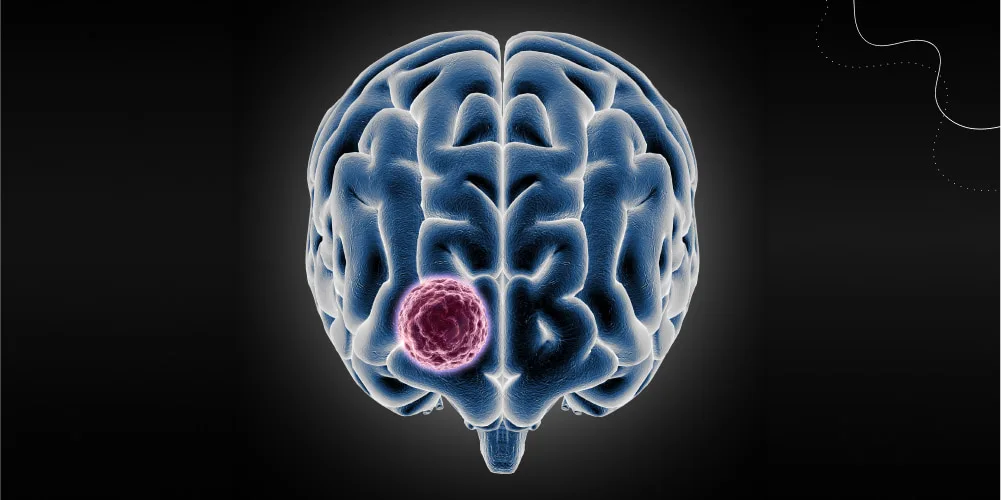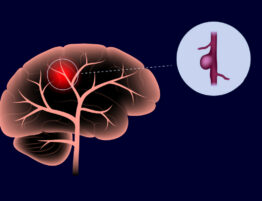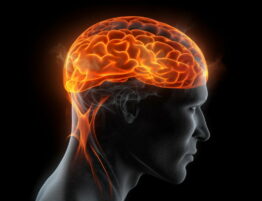When it comes to brain cancer, knowledge is power. Each diagnosis of this debilitating disease carries a unique set of circumstances. And, of course, it includes a wide range of available treatments.
Brain cancer progression is an important concept to understand. Brain cancer is an unpredictable and intractable disease. The faster cancer grows, the more serious the situation can become. The doctor can diagnose this disease at any age. Because brain cancer can progress, rapid diagnosis is key to a positive outcome.
Cancer comes with different symptoms and affects people in different ways. To empower yourself and make informed decisions about your care and treatment, it is crucial to understand the various stages of brain cancer and how they affect long-term and short-term outcomes.
This blog article will provide detailed information on what you need to know about brain cancer. We will teach you from the initial to the last stages of brain cancer. Read on to know what to expect with brain cancer.
Symptoms that Brain Cancer Progresses
Everyone knows what brain cancer is. But not everyone knows what symptoms it carries. Brain cancer can be a severe disease, and it is vital to know the signs and symptoms. As the disease progresses, some of the most common symptoms include:
In addition to these physical symptoms, other problems may occur. We are talking about changes in mental functions and behavior, for example:
- Difficulty concentrating.
- Speech problems.
As the tumor grows, it can lead to:
- Cognitive impairment.
- Memory problems.
- Short-term concentration problems.
Unfortunately, brain cancer’s end stages can be very stressful and disorienting for patients. Their cognitive abilities, such as memory and recall, may deteriorate. It will lead to increased forgetfulness or disorientation. It can make daily life much more complex and create difficulties that were not there before.
If these symptoms have been present long, it is crucial to seek professional medical help. Doctors will make the correct diagnosis and tell you the degree of cancer. Tumors with the last stages of brain cancer need medical treatment.
Stages of Brain Cancer
Unfortunately, doctors usually diagnose brain cancer at a late stage. It makes diagnosis and treatment difficult. There are four main stages of brain cancer – I, II, III, and IV. Each stage depends on the size of the tumor and its location. It also depends on how far it has spread into the brain or body.
Stage I is usually considered the most curable form of brain cancer. If you started treatment early, there is still the possibility of progression to other localizations. And that scares patients because they don’t know what to expect in end-stage brain cancer.
To properly diagnose and determine the best course of treatment for a particular case, doctors must use several diagnostic tests, including MRIs, X-rays, biopsies, and CT scans. With the proper medical intervention and care from a multidisciplinary team of specialists, patients can get the best results if they begin treatment early in the brain cancer process.
Let’s take a closer look at each stage of brain cancer:
Stage I
Stage I brain cancer refers to tumors localized in the brain. Doctors try to remove the tumor and surrounding tissue. In this way, they can reduce the chance of recurrence. Surgery is usually the first line of treatment.
Doctors may also use more treatments. So, they ensure that any remaining cancer cells are destroyed. We’re talking about:
- Radiation therapy;
- Chemotherapy.
The goal of stage I brain cancer is to eradicate the tumors. People need it so that there is no need for further treatment for that particular tumor in the future. Monitoring for recurrence remains a vital component of post-treatment care. It is how doctors can detect any signs of recurrence. Seeing them before they progress and become more challenging to manage is critical.
Stage II
Stage II brain cancer is a slightly more advanced form of the disease than Stage I.
Stage II brain cancer is more complicated and involves the growth of a tumor. Doctors need to track more closely.
Doctors see growth outside the brain during this stage of brain cancer progression. They do a biopsy. They use it to look at the tumors in detail and determine other treatments.
In the second stage, doctors also prescribe radiation or chemotherapy.
Stage III
Stage III brain cancer is defined as a malignant tumor. It means the metastases have spread beyond the original focus in the brain. And the metastases could have crossed the protective barrier. The protective barrier separates the brain from the rest of the body.
Stage III symptoms include common symptoms such as:
- Headaches;
- Nausea;
- Vomiting.
But, at this stage, you will notice more symptoms, such as:
- Seizures.
- Changes in speech.
Treatment options for stage III cancer depend on the degree of spread. Effective treatment depends on early detection. If not treated quickly and thoroughly, these symptoms may worsen.
What Causes Seizures in Brain Cancer Patients
Brain cancer can cause seizures in a variety of ways. The tumor itself can cause an increase in electrical activity. It leads to a seizure. Or, if the cancer is near a central area of the brain, such as the temporal lobe, that area may get affected and lead to a seizure.
Besides, concomitant treatments can also affect the chemical balance in the brain. It causes changes in brain tissue. And this can provoke seizures.
In any case, it’s essential for brain cancer patients to check their activity levels. Many of these causes are treatable with proper medical care.
Stage IV
The final stage of the disease is stage IV brain cancer. It denotes that the cancers have metastasized to different regions of the brain. They have progressed to the point that surgery alone will not cure them.
It is important to remember that the last stage of brain cancer treatment will be supportive. It includes palliative care and medication adjustments. And these treatments get directed by doctors to make patients feel comfortable.
Brain cancer end stages often involve significant lifestyle changes. Thus, providing resources such as counseling and support networks is critical. It can also include providing emotional support to both patients and family members. The goal should be to maintain quality of life and maximize pain control.
Risk Factors of Brain Cancer
As with most diseases, certain risk factors exist. These are associated with the development of brain cancer. Remember that information about risk factors can help you make lifestyle adjustments. Some risk factors may include:
Age: Older people are more likely to develop brain cancer.
Gender: Men tend to be at higher risk of developing the disease.
Prior treatment: People who have previously had radiation therapy to the head or neck.
Family history: Having a family member with brain cancer increases the risk.
About 5% of brain tumors doctors associate with genetic diseases:
- Li-Fraumeni syndrome.
- Neurofibromatosis
- Basal cell nevus syndrome
- Tuberous sclerosis
- Hippel-Lindau disease.
Knowing what to expect can help you and your family prepare for them. Knowing the risk factors associated with brain cancer can also give you insight into how to reduce your own risk. With proper education and awareness, it’s possible to manage brain cancer progression and maximize the quality of life for patients.
LoneStar Neurology Clinic
The team of our neurological clinic employs the best, highly qualified doctors. Every day they help many patients stabilize their conditions. Also, they cure many neurological diseases, if possible. With the help of modern equipment, we carry out accurate diagnostics. It allows us to identify diseases early. Sign up for a consultation with our neurologist right now by phone: 214-619-1910.
FAQs
What to expect with brain cancer?
Brain cancer can present various symptoms, depending on the stage and location. Treatment options depend on the degree of spread, and early detection is vital.
How do brain tumors cause seizures?
Brain cancer can cause seizures in a variety of ways. The tumor itself can cause an increase in electrical activity, leading to a seizure.
What causes seizures in brain cancer patients?
Concomitant treatments may affect the chemical balance in the brain. It can provoke seizures.
How do you know if you have a brain tumor?
It is important to note that brain cancer may present with various symptoms. It is best to consult your doctor for an evaluation if you have any concerning symptoms.













Please, leave your review
Write a comment: